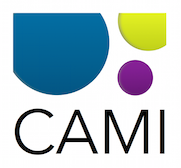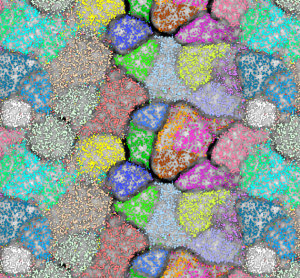Current CAMI Schedule for Participants:
| March 27, 2015 | “Challenge Part I” opens: Read data sets posted for assembly and read based profiling/binning |
| May 8, 2015 | Deadline for “Challenge Part I,” Assemblies |
| May 9, 2015 | “Challenge Part II” opens: Gold standard assemblies posted for contig-based profiling/binning |
| May 27-29, 2015 | 1st CAMI Evaluation Meeting. Details: http://cami-challenge.org/evaluation_meeting |
| June 19, 2015 | Deadline for “Challenge Part II,” Binning and Profiling |
| Autumn 2015 | Result Presentation |
 Despite advances in sequencing and genomic technologies, much of the microbial life in, on and around the planet remains unknown and uncultured. Metagenomics has proven useful in allowing researchers to glean snippets of information about uncultured microbes, but computational approaches still cannot completely interpret the information encoded in metagenomes.
Despite advances in sequencing and genomic technologies, much of the microbial life in, on and around the planet remains unknown and uncultured. Metagenomics has proven useful in allowing researchers to glean snippets of information about uncultured microbes, but computational approaches still cannot completely interpret the information encoded in metagenomes.
To help resolve this challenge, Critical Assessment of Metagenome Interpretation (CAMI), a new community initiative, is hosting a competition designed to allow researchers to evaluate computational methods in assembly, binning and taxonomy for metagenomes without bias. The competition, detailed at http://cami-challenge.org/, is scheduled to start at the end of the month, with results announced in the summer. The data sets to be used are based on unpublished microbial genomes contributed by a number of organizations, including the DOE JGI. One of the objectives is to develop a community paper based on these results.
CAMI Challenge Timeline:
- Challenge open: end of January 2015
- Evaluation meeting: Spring 2015
- Result presentation: Summer 2015

Emergent Self Organizing Map (ESOM) based on JGI mock community data. (Brian Thomas, Andrea Singh and Jill Banfield.)
CAMI will be open overall for 3 months. The first six weeks is for the metagenome assembly methods, and for methods that process read data sets. After six weeks, a gold standard assembly will be provided for methods that work on assembled data sets. To help prepare for the upcoming competition, sample metagenome data sets of varying complexities are available at http://data.cami-challenge.org/participate for download and testing. Researchers interested in contributing unpublished genomes for use in the competition should contact the CAMI Challenge lead organizers — Alice McHardy of the University of Dusseldorf, Thomas Rattei of the University of Vienna, and Alexander Sczyrba of Bielefeld University — at http://www.cami-challenge.org/contact by January 16, 2015.
To allow the community to follow the assembly, binning and taxonomic methods applied to the metagenomes, and encourage reproducible results, CAMI Challenge participants are encouraged to submit their tool using Docker containers. The DOE JGI has some familiarity with Docker containers, using them on nucleotid.es, an online repository that allows genomics researchers to compare microbial genome assemblers.
Sign up today for the CAMI Challenge at http://cami-challenge.org/participate!